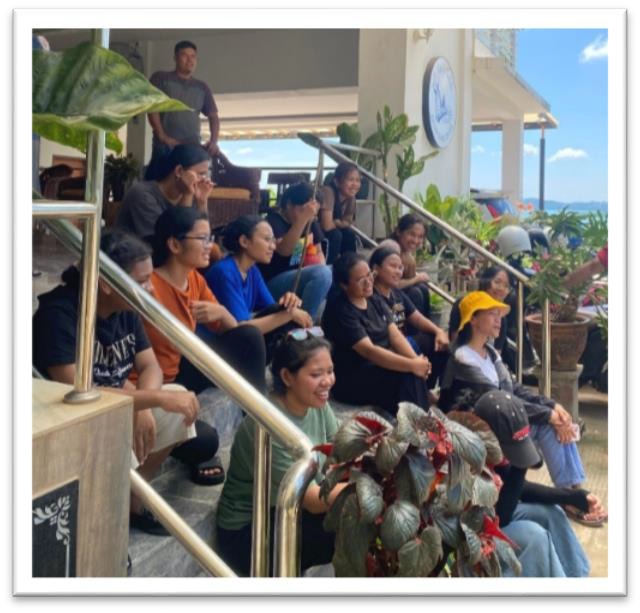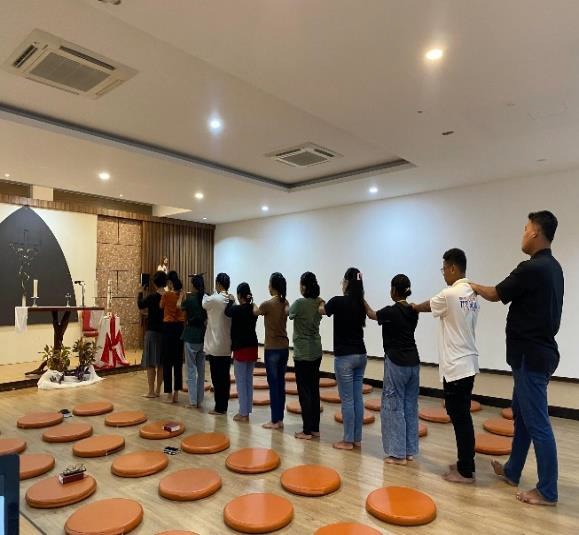
The focus of our province movement for the year 2025 is youth. Therefore, I will take this opportunity to encourage us all to deepen our understanding the youth people today. Let us begin by reflecting on the human person as fundamentally spiritual, and then focus on our youth, especially the millennial generations.
William James (1842 -1910) American philosopher and pioneering psychologist, convinced us that humans are essentially spiritual being. In his influential book, “the Varieties of Spiritual Experience” (1902), James draw two conclusions that are particular relevant. First, he believed that the visible world-including humanity- is part of a greater spiritual universe. Second, he argued that our ultimate purpose is union or harmony with the higher universe. In his theory of self, William James described tree aspect; Spiritual Self, material self, and social self. For James spiritual self is the core being- the most intimate part of who we are. This spiritual self involves introspection and self-understanding, which he saw as more rewarding than simply satisfying our materials or social needs.
Another influential psychologist, Carl Gustavo Jung (1975 – 1961) argued that human are religious by nature. In his work, Jung suggested that, there is an image of God in every person. This Divine image helps in reevaluation our values and serves as a guide in our personal development. In relation with the Self, Jung described the Self as “the totality of a person’s being, -a blue print of our potentials, guiding us toward greater unity of consciousness and unconsciousness in us. Self is seen as an inner companion that can provide guidance and support, even in the difficulties time. He even claimed that the Self could be called ‘the God within us”. From this perspective it is clear that we are spiritual being. The spiritual dimension of our lives guide us toward our intimate goal: communion with the One within us. This applies to everyone, including young people.

Taking the concept of both psychologists, we can understand the faith development of William James Fowler (1940 – 2015). He was a theologian as well as a professor of Human Development at Emory University, USA. His theory helps us to understand that our faith –fundamental part of being human, like other aspect of life- needs to be nurtured by people around, including us. In his research, Fowler presented seven stages of faith. He begin with the primal faith or undifferentiated stage, which is in the age of 0 to 1 year. In this stage, primary role is played by parents and family member. Here, the seed of faith within a baby is nourished by those closet to them. The interconnection between the authentic faith of family members and a small child is very important. A child’ faith grows unconsciously through the transmission of the faith from the parents and siblings. In the second stage, intuitive-projective faith (age 2 – 6) the primary role of nurturing faith remains with intimate family members. At this age, a child’s spiritual side is highly depended on the quality of faith lived by their close family. Children can sense and connect with genuine expression of the faith, even, through images or stories told to them. Parents also allow the children to participate in ritual and faith tradition, as these are lived honestly and truthfully by the family. In the third stage, Mystical-Literal Faith (age 7 – 12) is when children begin to think in concrete and literary ways. Family members are responsible for sharing faith stories, such as those of Abraham, and for allowing children to internalize these stories to discover their deeper meanings. The concrete experience of faith shared by the parents will remain strong in the children’s minds and hearts. The fourth stage, Synthetic-Conventional Faith (age 13 – 21) is the stage of youth. In this stage, young person begin to claim faith as their own. They move from relying solely on family to being influenced by friends, schools and Church. From these experiences, they try to synthesize their own faith. However, faith and spirituality in this stage often mirror those of their family or clos community. If they question their faith, it may reflect contradiction they observe in their role models. Furthermore, adult often project their own mature faith onto youth, even this adolescence are still in the process of assimilating their faith. Question about faith among youth, especially Millennial and Generation Z. require us to reevaluation of our adult faith and how we transmit it. If we demand youth to be faithful in the church activities, this expectation should first be modelled by us as adult.
By presenting this spiritual inheritance and faith development in our youth, we can revisit the role we have played in their life. We often judge them, but it is wiser to evaluate our own role as adult who have influenced their faith development. Who they are in terms of spirituality and faith consist, in large part, of what we have imparted to them. Therefore, it is not about their conversion; we are the ones who first need to change. May God bless us with awareness to begin this transformation!
Pankrasius Olak SS.CC.
Provincial Superior